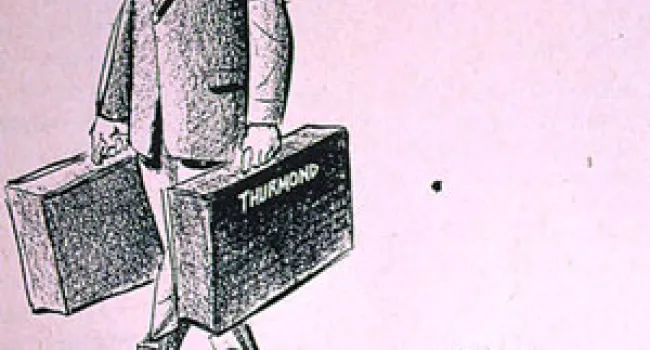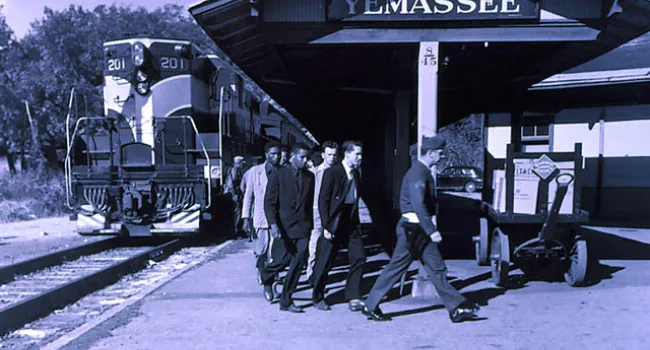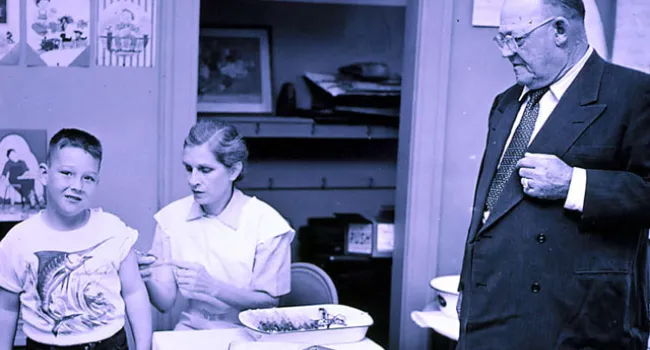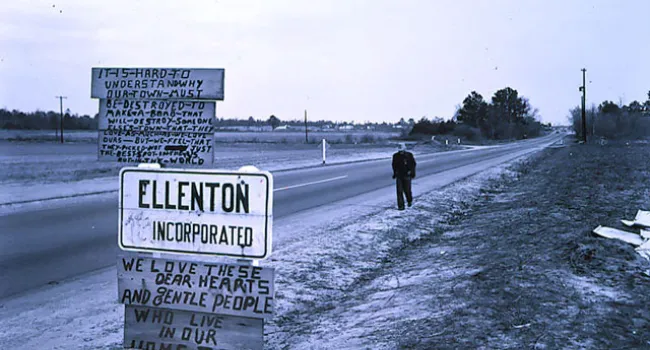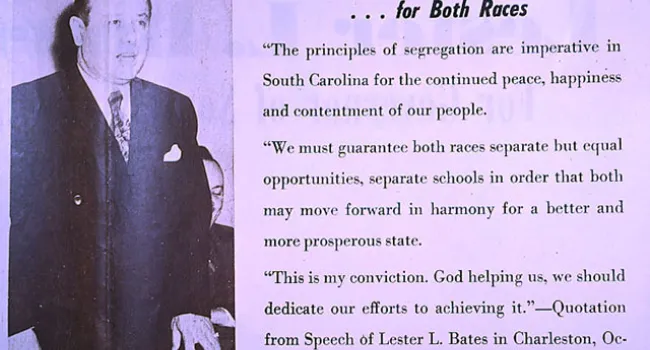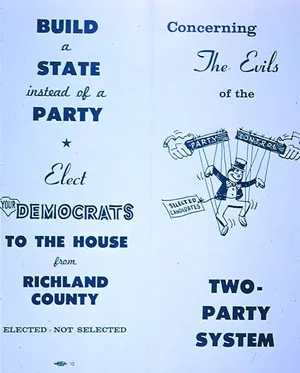
Since the end of Reconstruction, South Carolina had been regarded as the heart of the "Solid South," where only the Democratic Party elected officeholders on either the state or national level. The success of Dwight D. Eisenhower in South Carolina, in rallying "Democrats for Eisenhower" to a Republican presidential candidate, and the emergence of widespread dissatisfaction with policies of the national Democratic Party, led to a slow resurgence of the Republican Party in South Carolina. By 1960, Democrats in Richland County were worried enough to appeal to voters to continue their loyalty to the "single-party" system that had dominated South Carolina for so long.
Courtesy of the South Caroliniana Library.
Standards
- 8.5.CE Analyze the factors contributing to the shift in the political party platforms between 1946-1972.
- This indicator was designed to foster inquiry into the changes in South Carolina's political party platforms resulting fro the Civil Rights Movement, from Elmore v. Rice to the national Democratic Party's support of civil rights to Nixon's Southern Strategy. This indicator also supports inquiry in the effect on South Carolina's political party platforms resulting from the emergence of the national Republican Party's positions on foreign policy, limited government, and free trade policies.



